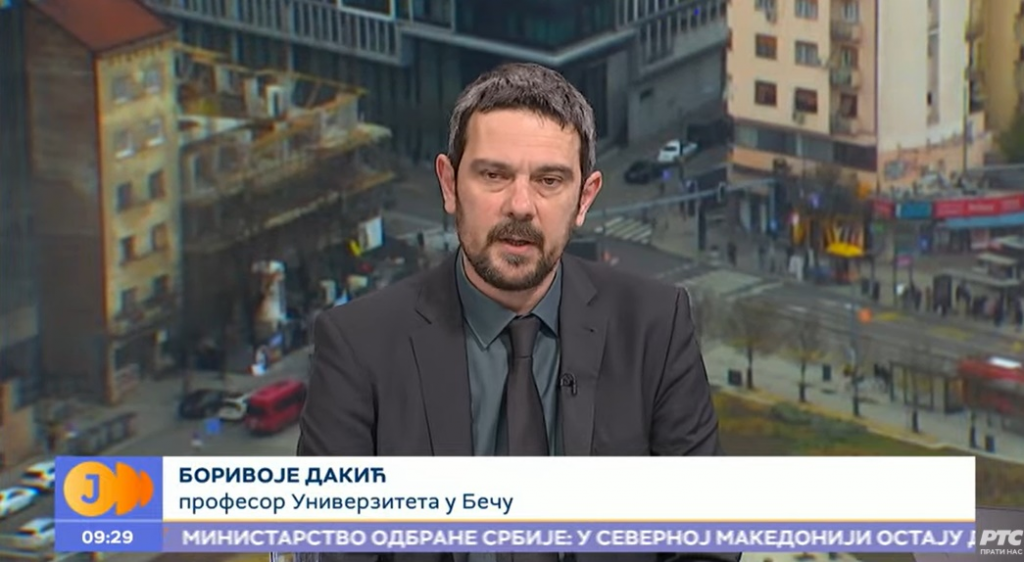
This year’s Marko Jarić Prize award ceremony once again attracted significant media attention. Often referred to as “The Serbian Nobel for Physics,” the prestigious award was presented to Dr Borivoje Dakić, Associate Professor at the University of Vienna, ‘for groundbreaking contributions to the development of theoretical approaches for quantifying and measuring total quantum correlations, as well as for introducing innovative methods to quantum tomography of complex multi-qubit systems, advancing the fields of quantum information and technology.’
Dr Dakić made a guest appearance on the RTS Morning Show on the day of the awarding ceremony on Monday, 17 March 2025, accompanied by Slobodan Bubnjević from the Department of Communication of the Institute of Physics Belgrade. ‘I have been immensely honoured. This award has existed for almost 30 years. While I studied in Belgrade, we had lively discussions on winners. To have the opportunity to stand where they once stood is a great honour,’ said Dr Dakić during the appearance.
The Radio Television of Serbia aired a report on the award ceremony by journalist Natalija Sinanović on Tuesday, 18 March. In a year declared The Year of Quantum Science and Technology, the Marko Jarić Prize for physics fittingly went to Professor of the University of Vienna Dr Borivoje Dakić who engages in quantum physics precisely, the report said.
Dr Borivoje Dakić also appeared on Euronews TV’s show ‘Let’s Have Fun’ on Monday, 17 March. Dr Dakić explained, ‘I received the prize for my research in the quantum informatics field, specifically quantum tomography, which includes some methods on how we can carry out diagnostics of these big quantum devices, which could one day become the future quantum computers.’
Politika Daily reported on Monday, 14 March, that this year the award was bestowed upon Dr Borivoje Dakić, and the story announced the award ceremony and the traditional popular science lecture.
Tanjug Agency also covered the ceremony, saying ‘Šabac-born Dakić graduated in 2004 from the Faculty of Physics in Belgrade, where he also earned his Master’s degree before completing his doctorate at the University of Vienna in 2011. As a researcher, he has spent some time at Harvard University, Oxford University and the National University of Singapore.




